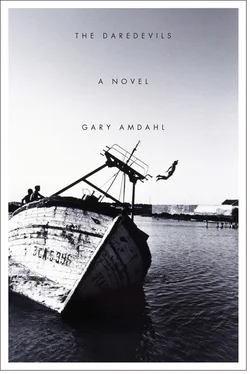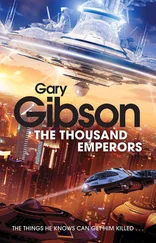They were already at the door.
Another wave from Vera and they were gone.
On Steuart Street, across from the Ferry Building, where the paraders had gathered to begin their march, the last of them were heading out: some very old men, Grand Army of the Republic veterans, some Sons of the American Revolution, and a group of Spanish-American War heroes, displaying the battle flag of the First California Volunteers. None of these men were hurt by the blast of the copycat suitcase bomb, which exploded just after the Volunteers had begun to march, but forty others were, and ten of them were killed. A policeman caught a little girl by the ankle, but had only her leg to show for it. The rest of her was some ways down Steuart. Three deaths elsewhere in the city were almost instantly connected to the bombing of the parade. The bomber, it was conjectured rather swiftly and easily, either just before or just after he’d activated his bomb and left it in its suitcase at the corner of Steuart and Market, had stabbed to death three people with whom he was associated in some way: Jules Beveridge, Lucille Olivet Brown, and Amado Joaquin Fernández de Lizardi (an erstwhile minister in the Juarez cabinet in Mexico City, exiled and in hiding with his brother). Brown and Fernández de Lizardi were found together, naked, in a bed in the basement of the motorcycle shop owned by Beveridge. The room housed a printing press, and the shop was frequented by radicals of every type — including anarchists. Warren Farnsworth was arrested in a doctor’s office where he was trying to get ointment for his eczema; and while claiming innocence, did not explicitly repudiate the idea (instantly current in the papers) that once he’d begun murdering — or had committed his soul to the unforgivable horror of it — he found he could not stop himself. Arrested also, on the Russian River while claiming to be fishing, was Thomas Moody, allegedly the mastermind of the plot, and Israel Minkowski. A dozen other men and women, including the infamous anarchist, Alexander Berkman, were arrested but released soon afterward.
PART THREE:“THE WATCHDOGS OF LOYALTY”
“‘He will repent it,’ we say.
And because we have given him a pistol shot to the head,
do we think he repents it?”
— Montaigne, “Cowardice, Mother of Cruelty,” Essays
“A man whose brain does not work at all times, but only at painful moments, is often haunted by thoughts of madness.”
— Anton Chekhov, Lights
Charles crossed from Saint Paul, where he lived, to Minneapolis on the Marshall Street Bridge. It was an unseasonably warm day in mid-November. The sky was low and shifting: gray-minded, he thought, irresolute. Was he? No. Susceptible to it? Yes. Perhaps. Spatters of rain the size of silver dollars appeared with loud cracks on the sidewalk, as if in prelude to a summer thunderstorm. He boarded a streetcar with a sense of portentous displacement in space and time — but of course he was among strangers in a strange place, about to commit strange acts — or rather, to commit himself to one single act of strangeness. That was to say — finally, he hoped — to act wholly outside himself. He wanted to appear as if he conformed to the idea everyone who saw him might have of him, and then. and then, well, yes, he hesitated even then, he didn’t know what he meant, he didn’t know what he meant.
He wanted somehow to act outside the natural corruption and degradation of his time. He was still Platonic enough to think one man’s actions could momentarily halt the flow of perfection to chaos, could in some small momentary way harken back to the perfect forms, the perfect ideas, to God. It would still be an act, I would still be an actor, Plato, if he knew I still saw myself as upon a stage, would condemn me, or at least insist I remain in my makeup, singing, imitating, ridiculous — to stay away at all costs from the world of the simple, the clear, the austere, the virtuous.
But he thought he had learned something from his friends, the so-called anarchists, and he wanted to know what it was like, what it might be like, to feel the faintest tremor or breeze or falling of the shadow of what it might be like to live that way, with no dogma, no gods, no fear.
It was all he had ever professed, but now saw so clearly, so painfully, how his profession had been vitiated by dogma, by a god, by fear.
The car’s driver wore a button he’d not seen before. It was yellow, had a number and a date on it, and a picture of a streetcar with the letters “AA of S” and “ERE of A.” He sat down behind the driver, leaned forward and asked what it all meant. Without turning his head, the driver replied, “Amalgamated Association of Street and Electric Railways Employees of America. Don’t confuse this here yellow button with the blue one now. Them blue buttons are company buttons. They say ‘Trainmen’s Cooperative Association’ on ’em, but it’s a darn lie. I’ll tell you what some citizens do and you can do what you like. They see a blue button and they spit on the nickel before they hand it over.”
“I’ve got a red button myself,” Charles said.
The driver slowly turned around and gave him a look. “You what?”
Charles didn’t think it was exactly with brotherhood that he spoke, but couldn’t say for sure that it wasn’t, either.
“Red button?” asked the driver.
“Card to tell the truth. You want to see it? IWW?”
The driver only continued to stare.
“Keep your eye on the road, friend.”
“Last man called me ‘friend,’ friend, had his tongue ripped out.”
“What a strange world you live in, friend.”
It was a lie: he was no more a Wobbly than Mother was. He was closer at that moment, if such a thing could be measured with any accuracy, to wanting to be the president of the United States than a Wobbly, which was to say, not at all. But he wanted to appear for a moment as a Wobbly, and so he did. The driver turned away, and he spoke no further to him.
He got off at Nicollet, near the ballpark, and stood for a moment listening for the sounds of a game he realized only after a few long seconds he couldn’t hear because a game could not be in progress so late in the year, however wonderfully warm and ideal for baseball the weather might be. The rain came forth suddenly, in blowing sheets, with lightning in the now suddenly black western sky. He got a car north and noted the yellow button. Downtown he walked east, getting soaked but not minding it, to the Milwaukee Road depot and the Chamber of Commerce building, home of the globe-encircling Grain Exchange. He pushed through the doors and immediately got a good looking-over by people in the foyer. The roar of speculation broke and crashed, subsided in a kind of ominous hissing, gathered again, broke and crashed, broke and crashed, then built steadily into a roar that did not break. His thick hair was slicked in broad daggers about his skull, his shirt was plastered to his back, his trousers dark and heavy with rainwater, his feet squirming in clammy beds of stained leather. Who’s this? everybody passing seemed to want to know. He ignored them and looked over a railed balustrade down into the big octagonal trading pit; then up at the huge French murals celebrating grain and its harvesters — so great on these vast paintings, he thought, and so obscure off them. He looked with some knowledge but not much interest at the giant quotation chalkboards and the tiny women on thin ladders and quaking scaffolds, covered like spinsters in dust, erasing figures and chalking new ones without surcease or visible complaint or difficulty or even, given that he couldn’t make out their faces and made his judgments based on posture, care. They had a mark to make and could not know or care what marks were being made at that moment by others of their kind. That was how he imagined their lives anyhow. A group passed near him, a murmur against the roar. A man with a small megaphone walked at its head. “Designed by Misters Kees and Colburn, it is the largest primary wheat market, and the biggest cash grain market, in the world. It is the only commodities exchange offering futures in dark spring northern wheat and sunflower seeds. It is the. ” and they were swallowed up, bullhorn and all. He mounted a broad marble stairway that led to the mezzanine, where the oceanic sound was much reduced. Halfway up the narrower stairs to the second floor, it was lost entirely. His legs felt heavy, bound by the damp cloth and leaden with anxiety, and where only minutes earlier he’d found the rain almost exhilarating he was now nearly miserable, as miserable as he ever allowed himself to be, as unsure of himself as he had ever been, as nervous as if he were suffering Chinese water torture. By the ninth floor, the floor to which he’d been directed by Father’s cousin’s secretary, the blood was banging and clicking in his head and he was breathing in gasps. It was an eerie floor, where nothing seemed to have moved for years, and it amplified what he recognized as akin to stage fright. He found a men’s room and retched in a stall. Once his wind and false but necessary sense of self was restored, he stared at himself in the mirror for a long while. No one came in while he conducted that silent, secret interrogation. He splashed cold water on his face, toweled off, ran a hand through his drying, thickening hair.
Читать дальше












